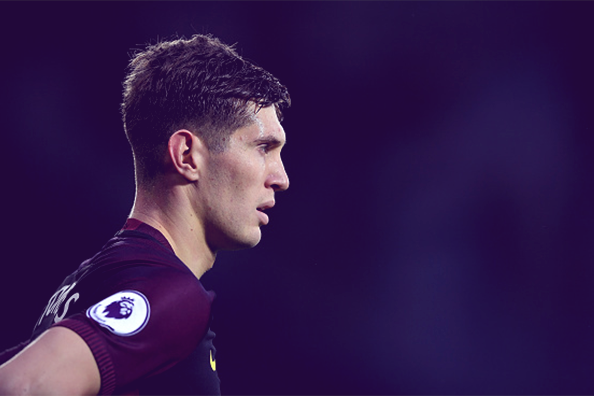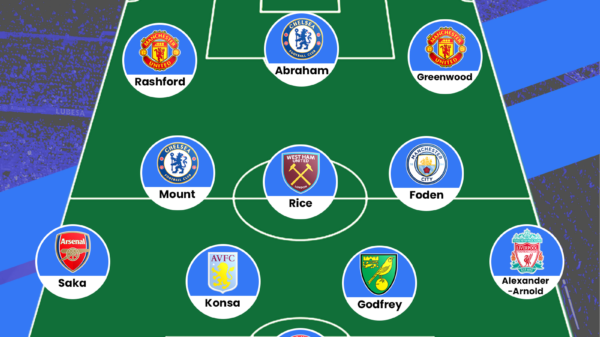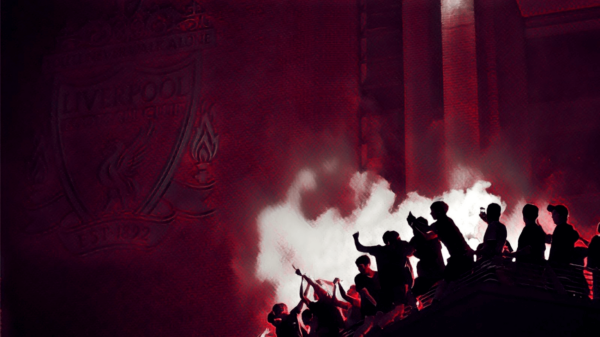Jeffrey Gamby-Boulger has a look at whether John Stones can fulfil his career as a central defender or if his future lay elsewhere?
After the blue half of Manchester revelled in their impressive victory over Barcelona, it seemed City had finally vanquished the hoodoo surrounding a team that has consistently thwarted them in their search for European glory. However, fast forward to their recent 1-1 draw against newly promoted Middlesbrough, and another inconsistent performance merely replaced euphoria with a sharp dose of reality, and brought any premature celebrations back down to earth with cold clarity as they continue to evolve under Pep Guardiola.

Victory over their recent European nemesis was seen as a landmark point in their improvement under the Spaniard, a cause for celebration to reignite a season which had begun to stall notably after a positive start. Instead, it served as a stark reminder of the bipolar nature of such a hugely talented squad. Brilliant performances followed by inconsistent displays simply act as a reminder of the surgery still required to completely erase the frailties of past traumas, and remains the Achilles heel of a team with seemingly limitless potential.
After a glittering start, which saw Guardiola and his team claim six wins in their first six league games, their perfect early season form has since trailed off, with one win in their last five games, including a damaging first defeat of the season to potential title challengers Tottenham. But even so, City have just one defeat in their opening ten league games, and it’s not just their early season form that has caught the eye so far as Guardiola continues his baptism into English top flight football.
Raheem Sterling has finally begun to repeat the kind of form that has deserted him for far too long, with Guardiola injecting some much needed confidence and consistency into the young man’s game, while İlkay Gündoğan has begun to shine in the engine room, offering stealth and skill to energise an aging midfield sorely needing invigorating.
And with Kevin De Bruyne continuing to garnish the side with the final touches of excellence in what surely promises to be a recipe for silverware, the future looks bright for City once Guardiola has had time to fully imprint his DNA on the blue half of Manchester. However, the Spaniard’s task of truly igniting City’s blaze of ambition after a series of promising starts under previous regimes has not come without its fair share of caveats.
Question marks still remain over John Stones and his rapid development, and one win in five league games means their blistering early form has tailed off dramatically. Yaya Touré, who has since apologised, has been cast out from the squad for most of the season so far and Claudio Bravo has done little since his move from Barcelona to justify his inclusion at the expense of England’s Joe Hart, culminating in his red card horror show against the Catalan giants. But with players adapting to their new manager’s philosophy, and their new manager adapting to his surroundings, one must be forgiven for finding some leniency in any criticism thus far.
But the fact is inconsistency still rears its ugly head all too frequently for such a talented and expensively assembled squad. And rightly or wrongly, there is one player who arguably epitomises this more than any other under Guardiola’s short tenure so far – John Stones.
One of the cornerstones of his club and country’s new generation of superstars, the young Englishman has often been labelled as England’s most naturally gifted defender since Rio Ferdinand, with a technique and grace that aligns him perfectly to Guardiola’s footballing ideals. But reflecting the kind of inconsistency matched, or fostered, by his club, he has been openly critiqued for his mistakes in recent months and singled out for high profile errors and performances not befitting a player that cost nearly £50 million.
Stones is increasingly seen as one of the emblems of Guardiola’s reign, a representation of all that he stands for – a player with supreme poise and intelligence on the ball, at odds with England’s traditional warrior mould. He encompasses the very best and worse that such a philosophy offers. He is a magnificently gifted player who caresses the ball with purpose, but, like his manager, a refusal to alter his approach and abandon his style of play can lead to mistakes and lost performances, where substance is compromised by style. Is this precisely what is holding the young defender back? Would more of an accommodating approach towards the traditional art of defending stand him in any better stead?
There could of course be a different, underlying issue. With a resolute willingness to pass the ball under pressure and play his way out of trouble, a natural skillset at odds with the ‘old-school’ defending of generations gone by and the confidence to step out and surge into midfield, these do not sound like the attributes of a world class defender. A defender whose job it is to, first and foremost, defend.
Think of some of the greatest Premier League central defenders in recent years. Vincent Kompany, Laurent Koscielny, even the ageing John Terry. All are perfectly competent ball players in their own right when the situation calls for it, but they all have one thing in common over the young Englishman; when the time comes they are defenders first, and players second. There is a slight, but very important difference. A difference it seems the young Englishman has yet to learn, appreciate, or grow into.
So are we witnessing a player refusing to conform to what he knows is expected of him? Or are we simply watching a young man learning his trade in the cold and unforgiving spotlight of the Premier League? Whichever it may be, there is one thing that can be said for certain: with his numerous traits, Stones bears all the hall marks of a player destined to leave the shackles and confined space of central defence, to experience something more and push further forward where he feels more comfortable, more effective, and more importantly, better suited.
So perhaps the question to be asked is not how his style of play hinders his position, but whether his position hinders his style of play?
There is no denying the young man’s natural talent, none at all. But with his team’s inconsistencies still seemingly ravaging a squad with such limitless potential, one could ask why such a natural talent being coached by such a talented manager is still making mistakes and performing with peaks and troughs. Progress takes time of course, but observing Stone’s affinity for ball play and midfield surges, often the prerequisites to the mistakes he is making, could one be forgiven for asking if central defence is still his true calling?
If one did not know, based purely on his technical skill and style of play, you might already assume he is not a centre back, and never has been. However, in recent times the game has changed and evolved. It’s updated and modernised. Present day centre backs are now far more integral to their team’s attacking fluidity than ever before. They are expected to be the complete package, possessing a more holistic skillset to reflect and adapt to the changing game. When once the adage was ‘defenders must defend’ what we are seeing now is almost a reversal in approach. Defenders that can play with intelligence and technical superiority are being bred for their purpose as opposed to the physical specimens of previous generations occupying the role.
The game has evolved from a ‘you-attack-we-attack’ philosophy. The game is now about control. How a team can control play, monopolise possession, craft attacks and never relinquish momentum. It’s not universal of course, and some teams still actively adopt other strategies if their players warrant it, such as a counter attacking game plan best showcased by Leicester City during their incredible Premier League triumph. Other teams may also be better suited to a more pragmatic style, often illustrated by Guardiola’s eternal aesthetic rival José Mourinho.
But generally speaking defenders with the ability to take possession of the ball and caress it as their team probe the opposition, and instigate attacking play from the safety of their own half, are becoming increasingly more valuable to teams than a pure defender who is physically adept but technically lacking. What we are seeing now however, is how this philosophy can be applied to the frenetic and often completely bespoke Premier League.
The ability to defend will never be lost, but it’s becoming less prevalent than it once was, and Stones’ £47.5 million behemoth of a move to Manchester City is a startling example of it. The ability to defend, coaches argue, is now more of a team effort. A team’s entire DNA and philosophy is more important than ever before, as coaches and managers are encouraged to breed a clear footballing ideal and imprint on their club.
And it’s no coincidence that Manchester City have now entrusted Guardiola, the man many see as the architect in the rise in popularity in this technical obsession, to bring silverware to the Etihad Stadium and mould players such as Stones into the next superstars.
A pupil of that glorious Barcelona team that found eternal legendary status under the magnificent Johan Cruyff, Guardiola identified Stones as a key player to fulfilling his footballing symphony, a player with all the necessary skill to epitomise his perfect vision.
It was an identity born in Barcelona – and the Catalan club has since spent the last 25 years clearly honing and chiselling it to near perfection from its instigator Johan Cruyff, passed down to the likes of Guardiola and Koeman, now descended to current incumbent and former player Luis Enrique.
And ironically, the man responsible for 14 trophies in his own four year spell as manager at the Camp Nou, concreting his self-belief in the philosophy he was born under, is now the man charged with bringing the same ethos and success to Manchester, as well as wringing the very last drops of potential from players like Stones.
The Spaniard is an advocate for technicality over physicality, aesthetics over pragmatics, possession over counter attacking. It’s a steadfast footballing belief reflected in his decision to axe Joe Hart, a fine shot stopper and reflex goalkeeper when on form, and replace him with the more adept and fleeter footed Claudio Bravo.
And it’s the same story in the heart of defence. John Stones was brought in, while Eliaquim Mangala was duly sent out on loan to Valencia; technically gifted players like Stones are seen as the vital component to fit alongside the other intrinsic elements of the perfect team jigsaw that Guardiola helped fashion in Spain, and is tasked with again constructing on English shores.
However, the Premier league is an altogether different beast compared to La Liga. Intense, physical, unpredictable, demanding and unrelenting, it is an unforgiving league where technicality does not necessary equal success.
Think of how players of the calibre of Özil, Cazorla, Silva et al, all struggled early on with consistency as they adapted to the league. And while Stones does not need such a period of transition, his adaptation to a foreign philosophy will. It is a reversal of situations – an English player adapting to a foreign manager, instead of a foreign player adapting to English culture.
While he may be used to the English style, his inherent strengths are exactly the qualities that separate him from tradition. He is not the archetypal central defender of old, and would have benefitted early on in his career by his excellent athleticism, fast tracking his development. This accompanied by his evident technical quality would have been singled out by hungry coaches keen to imprint the fast evolving possession based stamp on the English game.
But athleticism and physicality are two different things. Stones is not a physical player, simply an athletic one. To prevail in the Premier League, a balance is required. In this respect, the English game has always suited more traditional skillsets.
As a case in point, one need only look back at Guardiola’s former club. Gerard Piqué, a player often compared to Stones, thrives in Spain. It is a less physically demanding league but far superior technically. But a player such as Piqué still benefits from the physicality supplied by his normal centre back partner, Javier Mascherano. For everything Piqué lacks, the Argentinian provides and vice versa. They complement each other well, and to accommodate a player of Stones’s natural grace and poise, a similar partnership is required at City if they are to make the most of his talent.
Normally this wouldn’t be a problem. Vincent Kompany would provide the partnership to nourish and compliment the young Englishman. His experience, strength and leadership would perfectly suit Stones’s ball playing nous and midfield forays. However, with the Belgium’s recent injury problems starving him of regular football, Stones has had to depend on multiple different alternative partnerships. Nicolás Otamendi may be a fine player on his day, but he is not in the same bracket as his club captain.

Stones has had an eventful start to life at the Etihad (Photo credit should read LLUIS GENE/AFP/Getty Images)
Indeed, if you paint a picture of City’s season so far, and join the dots between a defence high on injuries and low on stability, plus the introduction of a new footballing infrastructure and a keeper trying to play as the 11th man, it is no wonder Stones has found himself under scrutiny this season for his mistakes. It’s natural for a player so young in such an environment. His every move has been highlighted and criticised to the nth degree by a saturated fan base and media.
Opinions have been raised, questions have been asked. Is trying to play out of trouble really always the best way? Should he be attempting Cruyff turns in his own area? Should he simply concentrate more on defending?
But the notion that defenders have to defend can be bypassed; bearing in mind you retain a player competent enough to do so. A team can afford to accommodate one ball playing talent at the heart of their defence, but not two. Without Kompany, one could argue that City lack the type of player Stones needs to truly flourish at this stage in his career.
So once again we come back to the prevailing question – even under the perfect conditions, is John Stones a natural defender?
In light of the evidence the answer many could argue is ‘no’. To therefore pay nearly £50 million for such a player is a gamble at best. But to examine this in more detail, one must again turn to La Liga and Guardiola’s former club, Barcelona.
It’s a league that Barcelona have been completely custom built for – and their entire club ethos has been honed and perfected to enable them to majestically dominate all they survey. But their technical level is not without its caveats.
They still require certain ingredients to thrive. In this respect Barcelona have developed and honed an acutely effective role within their squad, an often overlooked specific function enabling their unique philosophy to bloom. It is the ability to keep the team ticking over; a midfield lynchpin. It’s a role that can only be compared in England to Michael Carrick’s often unassuming and unheralded role with United.
It’s a position almost custom designed for Barcelona and their ball playing ethos. Normally the role of defensive midfielder is designated to tenacious and physical players, adept at winning, retrieving and shielding the ball. But in Barcelona’s cathedral of possession, such acts are seen as nothing more than last resorts, a primordial throwback to previous generations of the dark side of the beautiful game.
In their radical symphony of possession, retrieving the ball is only necessary in the rare moments when it’s lost in the first place. With their style of play, where possession is paramount and carefully constructed through waves of attacking forages into the opposition half, there is no need for a lone warrior, someone to chase the ball and combat their opponents.
Therefore their midfield is anchored not by a destroyer or a box to box midfielder, but by a ball playing lynchpin. And while Barcelona’s midfield has been radicalised and upgraded even further under current manager Luis Enrique, traditionally the player entrusted to be the metronome of the team has been Sergio Busquets.
With Mascherano provided the physical presence behind him, Busquets is left to quietly and efficiently link defence to attack, to keep possession, and more importantly momentum. And if one compares the two, is this not a role perfectly suited to Stones? On the surface it seems incredulous that Guardiola has not imagined this at some point – it must have crossed the mind of a manager of his calibre.
In a league so utterly enthralling and intense as the Premier League, moving Stones higher up the field would allow City, injuries permitting, to bolster their defensive heart with the physicality the English game demands, instead of shoehorning technically adept players into Guardiola’s philosophy regardless of the suitability to the English game, even one of our own. It would allow City to continue to foster the ball playing philosophy Guardiola craves with Stone’s technical quality at the base of his midfield. And with the resurgent Sterling and effervescent Sergio Agüero providing the attacking outlets, a midfield trio alongside Ilkay Gündoğan and Kevin De Bruyne harbours all the hallmarks of a potentially devastating triumvirate.
In defence, Stones has been lambasted for sticking resolutely to his natural style of play. But in the Premier League, a ball playing defender must be complimented by more robust reinforcements; technical quality alone is not enough. Stones is still young, but his mistakes are leading to uncertainty at the back and goals conceded. Operating further forward, he could fully utilise his skillset, safe in the knowledge that he has a back four behind him.
This must surely be a realistic prospect for the young Englishman as his game develops, and he becomes even more assured of his attacking intentions and natural instincts. The move to midfield is not unprecedented either of course – compatriot Eric Dier at title rivals Tottenham has been critically acclaimed for his successful transition to a defensive midfield position, for exactly the same reasons.
It’s something to consider surely.
England are often criticised for a lack of natural talent, but on this evidence England appear to have one of the brightest stars of the future. If Stones and Manchester City can find his perfect position, then both club and country could prosper handsomely in the future.
- Déjà vu on Tyneside: Why Newcastle are being left short-changed by familiar failings - September 20, 2017
- Rafa’s Revolution: Why Newcastle’s promotion from the Championship hasn’t been straightforward - May 4, 2017
- Can John Stones fulfill his potential as a Central Defender or does his future lay elsewhere? - November 16, 2016




























































